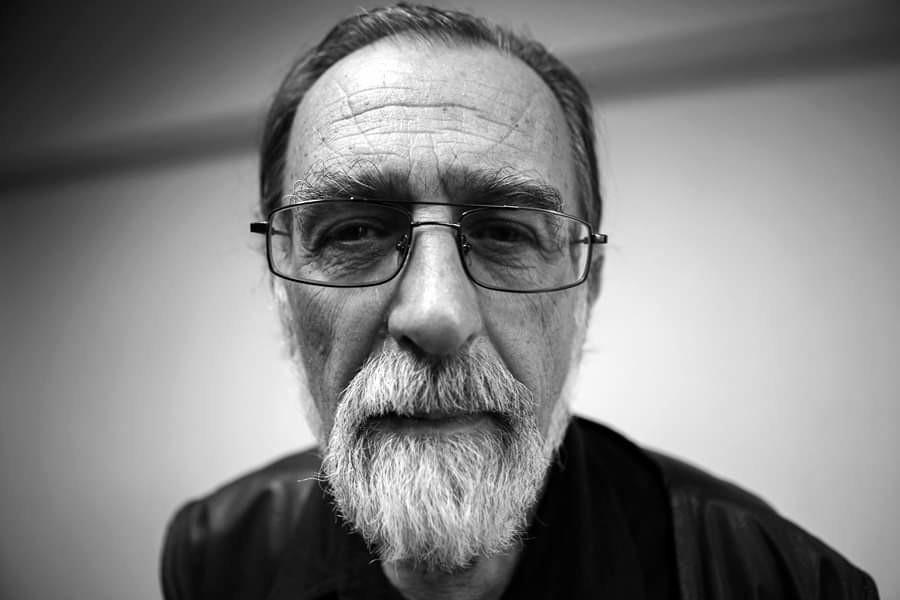In Memoriam
Vintilă Mihăilescu (1951-2020)

It is with deep sadness that we inform you that Vintilă Mihăilescu, a leading Romanian cultural anthropologist and a member of EASA since the association was founded, passed away on 22 March 2020 after a long illness. He was a prominent figure in the anthropology of Eastern Europe and he played an important role in developing the discipline of anthropology in Romania by forming several generations of young anthropologists.
Obituary written by Monica Heintz, EASA secretary
Vintilă Mihăilescu (1951-2020) was Professor of Anthropology at the National School of Political and Administrative Sciences (SNSPA) in Bucharest, an influential columnist and author of many books in the discipline of social anthropology and on contemporary Romania. While there is little difficulty in enumerating the first books in English (for example, The Fascination of Difference and Five introductory studies in anthropology), the translation of the titles of his books poses quite a problem, as they are tailored to match Romanian society so well that any translation becomes a dull betrayal: Sociohaihui: o altă sociologie a tranziției (“Sociohaihui: Another sociology of the transition”), Povestea maidanezului Leuțu: despre noua ordine domestică și criza omului (“The story of Leuțu, the street dog: On the new domestic order and the human crisis”), Apologia pârleazului (“The apology of the pârleaz), Etnogeneză și țuică (“Ethnogenesis and plum alcohol”).
Vintilă Mihăilescu trained in psychology in the 1970s. He went on to do research at the Romanian Academy, then became a professor of social anthropology in the 1990s at the Facultatea de Sociologie şi Psihologie a Universităţii Bucureşti and SNSPA. Between 2005 and 2010 he was the director of the prestigious Museum of the Romanian Peasant in Bucharest. Presented as such, his career would appear as a standard academic career, but there are at least two elements that made it atypical. First, his career unfolded during the late socialist period in Romania, when the social sciences were not visible, and during the transition period thereafter when economic difficulties meant that serious scholarship was not prioritised, and therefore remained invisible. All those who have practiced social sciences during these periods experienced the hardships of pursuing scholarship under such circumstances. The second element that made his anthropological career atypical is that in Romania, Social Anthropology as a discipline did not exist when he began.
Indeed, first and foremost, we Romanian social anthropologists owe the foundation of the discipline to Vintilă Mihăilescu. It is important to recall that social anthropology did not exist in its contemporary form in Europe before the Second World war. The iron curtain dropped on Romania in 1947 and it is only after 1989 that its scholars discovered “social anthropology” in the form in which it was taught by then in many Anglophone and Francophone countries. Founding a new discipline means institutional foundation, training of students, securing of funding- many exhausting and sometimes frustrating tasks, in which he was fully engaged.
We also owe him the debt of having made Romanian anthropology known beyond its own borders (he held visiting professorships in France, Switzerland, Germany, Hungary, Canada), where he was known as ‘THE Romanian anthropologist”, thus putting Romanian anthropological scholarship on the map of anthropological scholarship.
We owe him for having placed social anthropology on the intellectual map of Romania: he made anthropology known to the Romanian public through a weekly column in the prestigious weekly journal Dilema Veche, which he continued for over twenty years and which disseminated an anthropological perspective on Romanian social realities.
He promoted ethnographic fieldwork and what is even more rare, he promoted collective fieldwork (Gustian style, though more intimate in size), by organizing field expeditions throughout Romania. This drew foreign students to Romania in the 1990s, who directed their research towards Romanian issues, and allowed Romanian students to liaise with foreign students and opened up dreams and sometimes opportunities for them (many of his students went on to study for masters and doctoral degrees abroad).
Lastly (not because this is less important, but because it is what lasts) the relevance of his writings on Romania and their impact on the understanding of today’s Romania go far beyond the field of social anthropology. Vintilă Mihăilescu’s comparative anthropological perspective on Romania allows the reader to escape from the focus on the exceptional condition of Romanian experiences to an emphasis on the social and historical transformations that shaped Romania and made it what it is. To quote the title of a volume he recently edited and that sums up what an anthropological gaze at Romania could produce, he showed in his writings ‘de ce e România astfel’ (why Romania is this way) and not ‘de ce e România altfel’ (why Romania is different), thus putting once again Romania on the global map, as a specific, singular but comparable, linkable historical configuration.






